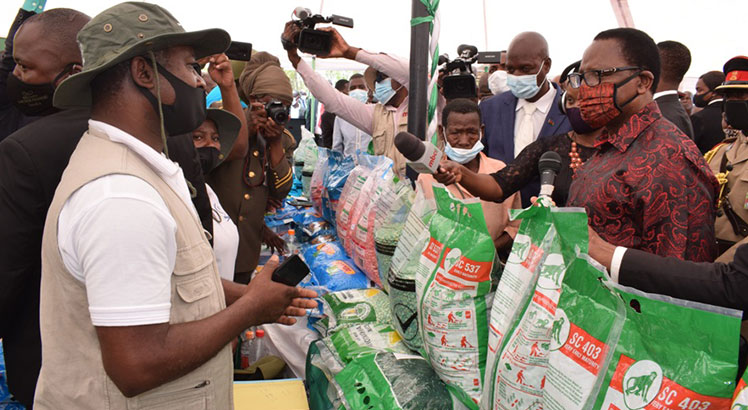Institute tips govt on AIP diversity, growth
The Mwapata Institute says there is a “great deal of evidence” supporting the reform or exit from the Affordable Inputs Programme (AIP) because the benefits of previous subsidy programmes in Malawi have been considerably smaller than anticipated.
In its February 2022 Policy Brief titled Redesigning the Affordable Inputs Programme to Diversify and Sustain Growth, the institute notes that the productivity increases in maize attributed to subsidies have been smaller than earlier estimates, coupled with volatile and high maize prices.

The institute observes that household and national food security have also not been achieved as maize imports and persistent food insecurity continue to rise, requiring distribution of food aid.
Reads the policy brief in part: “A recent Malawi Vulnerability Assessment Committee report found that around 10 percent of the country’s population [1.69 million people] faced high levels of acute food insecurity between July and September 2020, despite the generally good harvest experienced at a national level.
“These variations in the availability of maize cast doubts on the ability of subsidy programmes alone, in their current form, to ensure and sustain the country’s food security. Improving the overall impact of limited public resources on national economy is a sensible goal for any country, but first it is important to understand why previous programmes may have underperformed.”
Prior to the 2020/21 agriculture season, the programme targeted between 900 000 to 1.6 million smallholder farmers countrywide with inputs for legume and maize production for roughly 0.2 hectares of land.
After the 2020/21 agriculture season, government expanded the programme to reach 3.7 million farmers countrywide with a similar quantity of inputs.
Two seasons on, and having faced many new and familiar challenges, there is an expressed interest at the highest level of government to rationalise the programme and potentially devise a plausible exit strategy.
As a long-term intervention, the institute has since urged government to explore the possibility of locally manufacturing fertilizers to reduce reliance on volatile global fertiliser markets and provide a consistent, coherent, and enabling policy environment which is critical for driving productivity growth and poverty reduction and increasing payoffs to investments.
In the 2022/23 agriculture sector budget, AIP has claimed 85 percent (K109.5 billion) of the Other Recurrent Transactions budget. Speaking during the launch of the 2021/22 AIP, President Lazarus Chakwera said one of the exit strategies for the AIP is ensuring that farmers’ incomes increase so that they can be weaned off the programme.






One Comment